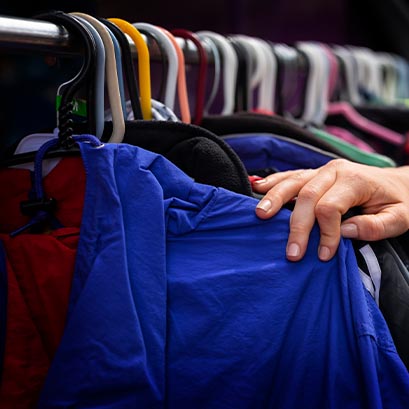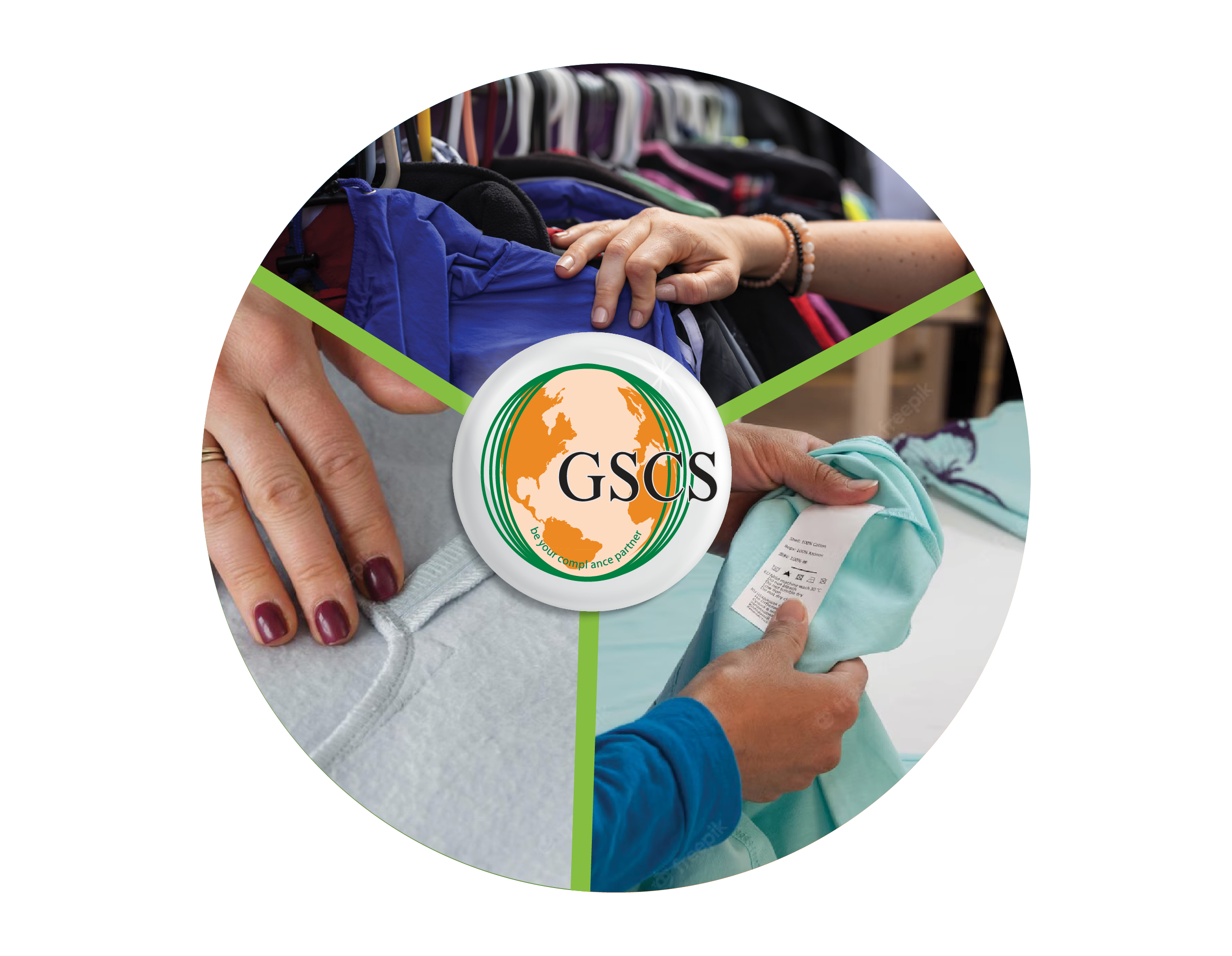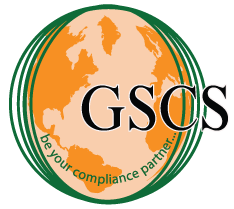
Benefits of Final Random Inspection (FRI) for Global Manufacturing
Introduction: Product quality is vital in maintaining brand reputation and ensuring customer satisfaction in the current competitive international market. Final Random Inspection (FRI) is one of the most essential methodologies in manufacturing, as it assesses product quality before shipment. This FRI guarantees that, at a minimum, client specifications and regulatory requirements are met, along with overall quality control.
GSCS provides quality assurance services in Bangladesh, Myanmar, and Ethiopia for a variety of customers covering Incoming control or Material Inspection, Pre-production control (On-site size set checking and PP meeting), Sample picking, Layout and First output quality checking, Inline Inspection (DPI) and Final Random Inspection (FRI). Our quality engineers are having 10 to 15 years of inspection and Quality controlling experience in 3rd party, buying office, and multi-national factories.
This article will explore the key advantages of Final Random Inspection (FRI): it enhances manufacturing quality assurance while minimizing risks within the international supply chain.

What is Final Random Inspection (FRI)?
The final random inspection (FRI) method is also referred to as pre-shipment inspection (PSI) and is known as a third-party quality control check conducted between 80% and 100% packing of goods. FRI inspectors select sampling units from the lot to check for conformance with order specifications, functionality, safety, and packaging.
Most global industries today use it for textiles, electronics, automotive, and consumer products to ensure that the end users do not receive defective products.
Why FRI is Important in Global Manufacturing
As manufacturing is becoming a global reality, ensuring effective quality control across borders becomes an essential need. FRI assists manufacturers in making sure that their products are fit for the international market. Below are some highlighted points as to why FRI is necessary:
✔ Global Reach and Compliance: As the manufacturing of products shifts to different countries, these products must adhere to various regulatory compliances. FRI guarantees that compliance is strictly met before any product is exported to another country.
✔ Brand Reputation: Companies can lose their reputation if they provide faulty products to their clients. Market surveillance FRI guarantees that only high-quality products are made available in the market, thus protecting the brand's reputation.
✔ Cost-Efficiency: FRI adds value for money; offering inspecting items in every batch is the most time-consuming and expensive option. Reliant quality assurance helps save costs and ensures a good brand reputation.
Key Benefits of Final Random Inspection (FRI)
FRI has many benefits for businesses, especially in industries that bear severe consequences for product defects. Let us take a look at some of the benefits:
1. Helps Avoid Defects and Quality Management Problems
FRI stops defective goods from reaching the customers as the goods are inspected prior. By examining samples, manufacturers can address issues preset in material type, artistry, and functioning, thus mitigating defective goods entering the market.
2. Ensures Compliance with Product Standards
FRI helps manufacturers comply with the following:
- Customer specifications (size, material, color, design)
- Regulatory requirements (safety, environmental, and ethical standards)
- Labeling and packaging guidelines
3. Reduces Costly Returns and Rework
Shipping defective or non-compliant products can result in high return rates, refunds, and reputational damage. By implementing Final Random Inspection, manufacturers can:
- Identify defects before shipping
- Reduce production rework costs
- Lower return and refund claims
- Improve overall cost efficiency
4. Increases Brand Reputation: Product quality at every step leads to customer trust.
5. Improves Supply Chain: Guarantees timely logistics and eliminates delays.
6. Increases Supplier Responsibility: Ensures the producers meet the established quality standards.
7. Reduces Risks for Exporters and Importers
FRI inspection provides businesses participating in import and export an extra level of comfort while ensuring that products are:
-Correctly manufactured
-Properly labeled for international shipping
-Compliant with destination country regulations
The Final Random Inspection (FRI) Process
These valuable guidelines can aid in the proper completion of Factory Routine Inspection (FRI).
1. Preparation for Inspection
✔ The factory should be informed beforehand.
✔ Inspection criteria and sampling selection procedures are created.
2. Random Sample Inspection
✔ Products from the final batch selected at random are inspected.
✔ Sampling is done in compliance with the acceptance criteria AQL (Acceptable Quality Limit).
3. Inspection and Examination of Quality
✔ Evaluation of physical appearance, specific dimensions, material features, and artistry is undertaken.
✔ Depending on the product type, perform functional and durability tests.
4. Classification of Defects
✔ Minor Defects: Small imperfections that do not impact product efficacy.
✔ Major Defects: Defects that render some degree of usability or performance unusable.
✔ Critical Defects: Severe defects that can seriously injure a person or present life-threatening conditions.
5. Inspection Decisions and Reports
✔ The final step in the FRI check is providing an extremely detailed inspection report.
✔ The seller will assess the consequences, give instructions, suggest replacement items, and decide if they accept the shipment.
Why Should You Pick GSCS International for Final Random Inspection?
GSCS International is a great candidate for Global FRI audits if you're looking for an inspection service provider. Here's why:
Global Presence: GSCS offers unmatched expertise in the mediation of Global Quality Assurance and Compliance Verification.
Comprehensive Inspection Services: From random sampling to defects verification analysis, GSCS ensures that stringent quality control measures have been executed on their clients’ products or services.
Tailored Industry Services: Be it textiles, electronics, or even consumer products, GSCS customizes each inspection procedure for specific industry requirements.
Reliable & Objective FRI Reports: Through the use of a clear and unambiguous audit system, GSCS assists International businesses with no accurate FRI reports.
Certification And Standards Compliance: GSCS ensures that GSC International’s clients’ products are compliant with global standards and certifications.
Conclusion: Final Random Inspection (FRI) is a vital step in ensuring quality control, risk reduction, and customer satisfaction in global manufacturing. By implementing FRI inspections, companies can protect their brand reputation, improve supply chain efficiency, and reduce costly returns.
For businesses looking for trusted FRI inspection services, GSCS International offers comprehensive and customized solutions to meet your manufacturing quality assurance needs.
FAQ:
A Final Random Inspection (FRI) is a quality control process conducted when at least 80% of a production batch is completed and packed. It ensures that products meet quality standards before shipment by randomly selecting samples for inspection.
A random inspection is a quality control method where a selection of products is checked at various stages of production. It helps identify defects, maintain consistency, and ensure compliance with customer and regulatory requirements.
The final inspection process involves selecting random product samples, checking them against quality standards, and verifying packaging, labeling, and overall compliance. If the inspection meets the required acceptance level, the shipment is approved.
Final inspection in quality control is the last step before product shipment. It ensures that finished goods meet all specifications, are free from major defects, and comply with industry and customer requirements.
A final inspection checklist includes:
- Product appearance and workmanship check
- Functionality and performance testing
- Dimensions and weight verification
- Packaging and labeling inspection
- Barcode and marking verification
- Compliance with safety and regulatory standards
